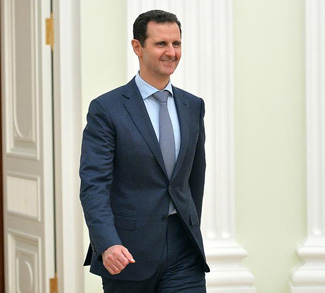Summary
Although the arrest of Gen. Ratko Mladic may be a step toward Serbia’s accession to the EU, the country still has a long way to go – politically, economically and in winning hearts and minds.
Analysis
With the arrest of alleged war crimes mastermind Ratko Mladic, which conveniently coincided with the arrival of a European Union delegation in the country, Serbia can cross one more item off of its pre-accession to-do list. Only one alleged Serbian nationalist war criminal, Goran Hadzic, now remains at large. President Boris Tadic has promised Hadzic will be arrested “as soon as possible.”
“The arrest of Ratko Mladic will help to close a dark chapter in the history of the Balkans,” said Council of Europe secretary general Thorbjorn Jaglund in a statement. “It will open the way for reconciliation in the region, and help all countries to focus on their European future. Therefore this is also good news for the people of Serbia.”
The New York Times described the mood of pan-European officials and elites as “euphoric.”
The situation on the ground, however, was much more contentious. Which people was Jaglund referring to? Certainly not those nationalists who rioted in the streets to learn of their leader’s arrest. According to the BBC, over 7,000 people protested in Belgrade, chanting nationalist slogans and hurling stones and flares, after learning of Mladic’s May 26 (date check) arrest, and 3000 in his native region. “Cooperation with the Hague tribunal represents treason,” said Lidija Vukevic, spokeswoman for the Serbian Radical Party, the most influential of multiple right-wing nationalist factions. “This is a protest against the shameful arrest of the Serbian hero.”
Canadians will remember that while only a minute number of Quebecers supported, much less joined, the FLQ, a whole lot more—enough to make federalists very nervous—quietly voted for sovereignty in the 1980 and 1995 referendums. While those who rioted in Belgrade may represent a lunatic fringe, Euroskeptics form a significant part of the Serbian population, as much as 40 per cent. Ill-timed EU intervention or further economic difficulty could push this number higher, and make a membership referendum difficult.
While the poll numbers of the ultranationalist SRP may be on the decline (partially because its leader, Vojislav Seselj, has been sent to The Hague himself), smaller parties have won votes in the fractious parliament by adopting a similar nationalist ideology. Political parties in Serbia, according to an editorial by the staff of influential Serbian TV network B92, are faced with a problem: “If they were to openly welcome Mladić’s arrest, they would antagonize a part of their voters, among whom there are still a lot of Mladić’s sympathizers.”
Historically, the voters who have sided with nationalist movements in the Balkans have been those who have fared worst in the ongoing economic growing pains that followed the collapse of Yugoslav socialism—less educated, rural males who held, or would have held, factory jobs under socialism. In the years immediately following the breakup of socialist Yugoslavia, IMF intervention led to closure for 49 per cent of the countries factories. Result: an entire demographic group with no way to provide for themselves and nothing to do. Those who are too young to remember socialism have another, fresher memory to turn them off of integration, the 1999 NATO bombing of Belgrade. The majority of this group is also skeptical of any form of Western intervention, be it homosexuality and the gay rights movement (which some see as an internationalist conspiracy to threaten the survival of the Serbian ethnic group), NGO funding for certain organizations, recognition of Kosovo independence or, you guessed it, integration into a supranational body.
For this social group, Mladic, Karadzic, Hadzic and their contemporaries are admirable people who, whatever their faults, at least stood up for Serbian national identity and integrity. Pro-EU president Boris Tadic and his supporters are seen as collaborators with a superstate seeking to upend Serbian life as it has been for centuries.
Serbia’s EU membership is, objectively, a long way off. Although it applied for EU membership in 2009, it has not yet received official candidate status To go from candidate status to the opening of official accession negotiations takes over a year, and then comes the long, tortuous process of the acquis communautaire, bringing a candidate country’s legislation in line with EU law on everything from fish imports to the always-contentious issue of minority rights.
While a significant step may have been taken, accession is still a distant dream for the Serbian elite, and a downright scary proposition for many Serbs. Both the pro-accession lobbies and the nationalists still have plenty of time to press their points and win hearts and minds. It is those hearts and minds, not a few elites in Brussels celebrating the arrest of a single man, that will decide if Serbia enters the EU, decides not to, or is dragged there kicking and screaming.
Ruby Pratka is a contributor to Geopoliticalmonitor.com



